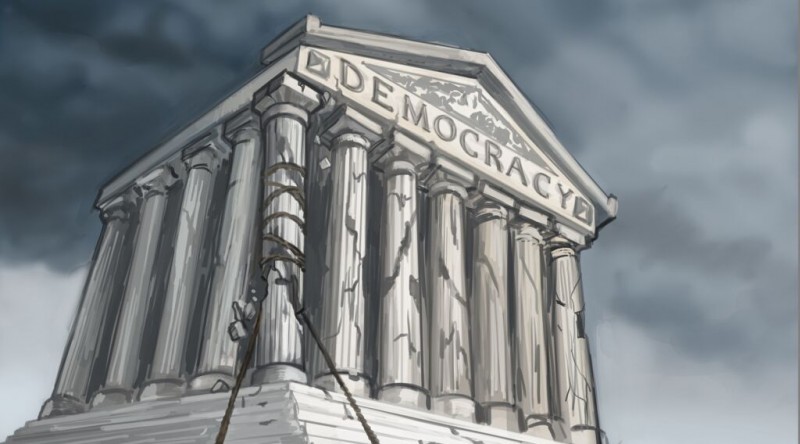
In present global democracies around the world are in crisis they have been declining due to undermined problems ranging from restrictions on freedom of expression to distrust in the legitimacy of elections. With the end of 2022, the world has been trapped beneath the weight of a multitude of old and new problems. Democratic institutions are especially critical in times of crisis and fear.
Democracies are struggling to effectively bring balance to environments marked by instability and anxiety, and populists continue to gain ground around the world as democratic innovation and growth stagnate or decline. In 2021, the level of democracy enjoyed globally by the average person was down to 1989 levels. And in 2020, nearly 75 percent of the world’s population lived in a country that faced democratic backsliding.
Half of democratic governments around the world are in decline while authoritarian regimes are deepening their repression. There are troubling patterns even in countries performing at middle to high levels of democratic standards. Progress has stalled across the Global State of Democracy Indices (GSoD Indices) over the last five years. In many cases, democratic performances are no better than they were in 1990. There is a fine line between normal democratic conflict and conflict that threatens democracy, and politicians must be able to articulate the difference.
The number of protests around the world has been doubled between the 2017 and 2022 raising a number of political and economical issues. People’s ability and willingness to publicly protest is a sign of functioning democracy but is also a warning for the government, that government is failing to effectively respond and could damage the legitimacy of democratic model. As per the survey of 77 countries it shows that less than half(47.4) of all the respondents believe in implying democracy to a country as compared to the 2017 percentage where it stands at 52.4.
Brazil, El Salvador, Hungary and Poland are severely backsliding, where India, Mauritius, and the United States are moderately backsliding. Afghanistan, Belarus, Cambodia, Comoros and Nicaragua have experienced a broad decline. Democracy does not appear to be evolving in a way that reflects quickly changing needs and priorities. The Clean Elections and Effective Parliament sub attributes are the most commonly impacted across these cases, suggesting that even maintaining the façade of elections is a struggle.
Causes of democratic backsliding include lack of public support for democracy, economic inequality and social tensions, populist or personalist politics, and external influence from great power politics. The global scores for Representative Government, Fundamental Rights and Checks on Government are exactly the same as they were in 2001, continuing at the same mid-level range of performance.
The UN has also been involved in the matter foreseeing that the term ‘democracy’ is losing its faith and trust for which the UN Secretary-General called for a “New Social Contract”, to restore public trust and forge a stronger compact between Governments, people, civil society, business and more, based on equal rights and opportunities for all.
Democracy must be reinvigorated—not because it needs to prevail in a presumed new Cold War era, but because it still offers the best chance of preserving what is needed for (and valuable in) human life.
Hockey WC: Belgium ends NZ’s hopes, advances to semifinals
The UK will implement X-ray age checks to identify adult asylum seekers who are posing as children
Indian and Pakistani nuclear war according to Pompeo was averted